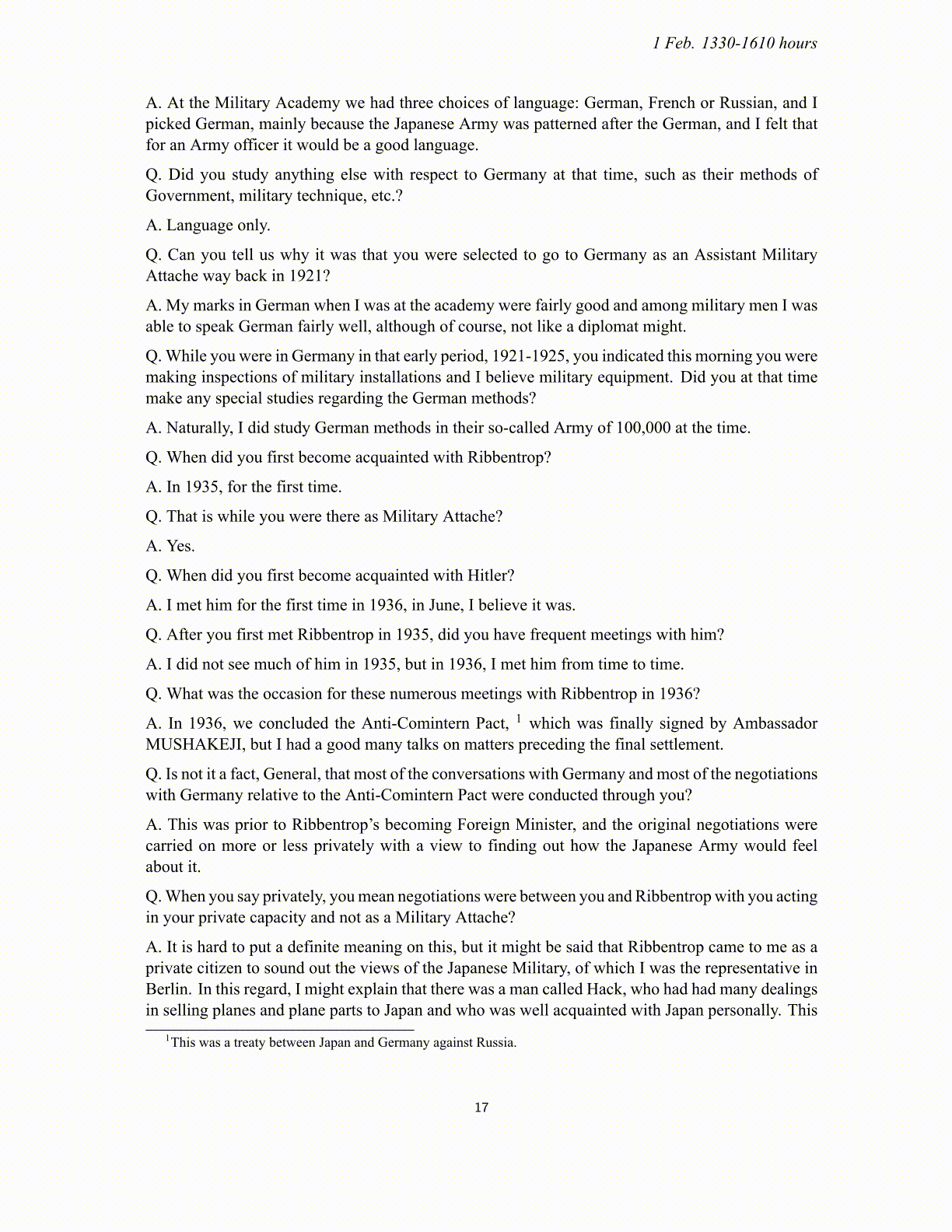
1 Feb. 1330-1610 hours A. At the Military Academy we had three choices of language: German, French or Russian, and I picked German, mainly because the Japanese Army was patterned after the German, and I felt that for an Army officer it would be a good language. Q. Did you study anything else with respect to Germany at that time, such as their methods of Government, military technique, etc.? A. Language only. Q. Can you tell us why it was that you were selected to go to Germany as an Assistant Military Attache way back in 1921? A. My marks in German when I was at the academy were fairly good and among military men I was able to speak German fairly well, although of course, not like a diplomat might. Q. While you were in Germany in that early period, 1921-1925, you indicated this morning you were making inspections of military installations and I believe military equipment. Did you at that time make any special studies regarding the German methods? A. Naturally, I did study German methods in their so-called Army of 100,000 at the time. Q. When did you first become acquainted with Ribbentrop? A. In 1935, for the first time. Q. That is while you were there as Military Attache? A. Yes. Q. When did you first become acquainted with Hitler? A. I met him for the first time in 1936, in June, I believe it was. Q. After you first met Ribbentrop in 1935, did you have frequent meetings with him? A. I did not see much of him in 1935, but in 1936, I met him from time to time. Q. What was the occasion for these numerous meetings with Ribbentrop in 1936? A. In 1936, we concluded the Anti-Comintern Pact, 1 which was finally signed by Ambassador MUSHAKEJI, but I had a good many talks on matters preceding the final settlement. Q. Is not it a fact, General, that most of the conversations with Germany and most of the negotiations with Germany relative to the Anti-Comintern Pact were conducted through you? A. This was prior to Ribbentrop’s becoming Foreign Minister, and the original negotiations were carried on more or less privately with a view to finding out how the Japanese Army would feel about it. Q. When you say privately, you mean negotiations were between you and Ribbentrop with you acting in your private capacity and not as a Military Attache? A. It is hard to put a definite meaning on this, but it might be said that Ribbentrop came to me as a private citizen to sound out the views of the Japanese Military, of which I was the representative in Berlin. In this regard, I might explain that there was a man called Hack, who had had many dealings in selling planes and plane parts to Japan and who was well acquainted with Japan personally. This 1 This was a treaty between Japan and Germany against Russia. 17